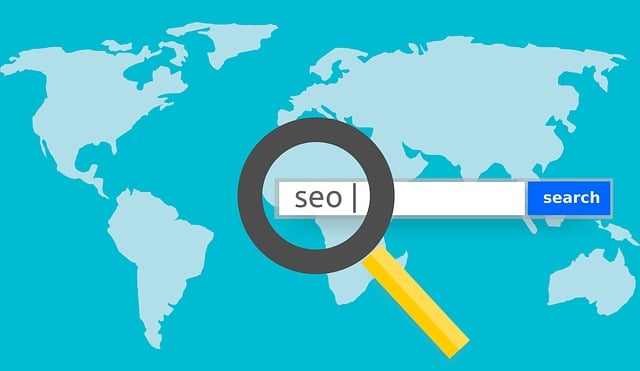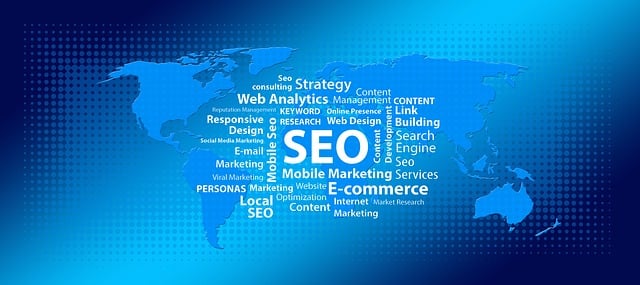By 2025, SEO is driven by SEO Trends 2025 focused on personalization, powered by AI, ML, and advanced technologies like voice search, AR, and VR. Search engines leverage user data to deliver tailored content and rankings based on individual preferences, behaviors, and interactions, enhancing user satisfaction and engagement. Marketers must adopt a data-driven approach, utilizing tools for A/B testing and analytics to optimize content strategies, ultimately outperforming in the competitive digital landscape.
In today’s digital landscape, personalization is transforming SEO trends 2025. Search engines are evolving from generic results towards individualized search experiences, prioritizing content that resonates with each user’s unique needs and preferences. This article explores emerging technologies driving personalized SEO, leveraging user data for targeted content optimization, and the pivotal role of Artificial Intelligence (AI) and Machine Learning in ranked personalization. We also delve into strategies for creating engaging, personalized user journeys and methods for measuring the impact of these innovations on SEO success.
Understanding Personalization in SEO: The Shift Towards Individualized Search Experiences

In the dynamic landscape of SEO Trends 2025, personalization has emerged as a game-changer, transforming how search engines deliver results to individual users. Gone are the days when one-size-fits-all approaches sufficed; today’s digital world demands tailored experiences that resonate with each user’s unique preferences and behaviors. Personalization in SEO involves using data and algorithms to understand user intent better, offering relevant content, products, or services based on their past interactions and interests. This shift towards individualized search experiences isn’t just a trend but a necessity driven by evolving consumer expectations.
As users, folks expect search engines to anticipate their needs, providing answers or solutions before they even ask. Personalization enables this level of foresight by learning from user behavior patterns, historical searches, and clickstream data. By delivering personalized results, search engines enhance user satisfaction, encourage engagement, and foster a loyal connection with their audience—all crucial factors in the competitive SEO arena of 2025.
Emerging Technologies Driving Personalized SEO in 2025

The year 2025 is on the horizon, and it promises to be a transformative period for search engine optimization (SEO) as emerging technologies continue to shape the digital landscape. Artificial Intelligence (AI) is at the forefront of this evolution, playing a pivotal role in driving personalized SEO trends. Advanced AI algorithms can now analyze vast amounts of user data to create intricate consumer profiles, enabling search engines to deliver highly tailored results. This level of customization improves user experience and keeps searchers engaged for longer periods.
Voice search technology is another game-changer on the horizon. With the widespread adoption of virtual assistants, more users are relying on voice commands to find information. SEO trends in 2025 will focus on optimizing content for voice searches, encouraging natural language queries, and ensuring that web pages provide concise answers to user questions. Additionally, the integration of augmented reality (AR) and virtual reality (VR) technologies is expected to enhance online shopping experiences, influencing content creators to incorporate interactive elements into their digital strategies.
Leveraging User Data for Targeted Content Optimization

In the evolving landscape of SEO trends for 2025, leveraging user data has emerged as a powerful strategy for targeted content optimization. By utilizing detailed user behavior insights, businesses can craft highly personalized experiences that resonate with their audience. This involves analyzing patterns in browsing history, search queries, and interactions to create tailored content that addresses individual needs and preferences. For instance, recommendation engines powered by machine learning algorithms can suggest relevant products or articles based on past engagement, significantly enhancing user satisfaction and retention.
This data-driven approach goes beyond basic demographics to uncover nuanced insights about consumer behavior. By understanding the unique journeys of individual users, brands can create targeted SEO strategies that drive higher conversion rates and foster deeper customer connections. As search engines evolve to prioritize personalized experiences, those who effectively harness user data will be at a significant advantage in the competitive online market.
The Role of Artificial Intelligence (AI) and Machine Learning in Personalized Ranking

Artificial Intelligence (AI) and Machine Learning (ML) are revolutionizing SEO trends in 2025, particularly when it comes to personalized ranking. These technologies can analyze vast amounts of user data to understand individual preferences and behaviors, allowing search engines to deliver tailored results. By leveraging AI, search algorithms can learn from user interactions and continuously refine their suggestions, ensuring a more relevant and unique experience for each user.
In the ever-evolving SEO landscape, personalized ranking systems are becoming the norm, thanks to AI’s ability to predict user intent and provide contextually appropriate content. This shift is not only enhancing user satisfaction but also driving engagement and conversions. As AI continues to advance, it will play a pivotal role in shaping how search engines understand and cater to individual needs, marking a significant SEO trend to watch in the coming years.
Creating Engaging, Personalized User Journeys: Strategies for Success

In the ever-evolving landscape of SEO trends, personalizing user journeys is a game-changer for 2025 and beyond. By understanding individual preferences and behaviors, businesses can create tailored experiences that captivate and retain users. One successful strategy involves leveraging data analytics to segment audiences based on their interests, purchase history, and browsing patterns. This enables personalized content delivery, ensuring each user receives relevant information that resonates with them.
For instance, e-commerce platforms can utilize AI-powered recommendation engines to offer product suggestions aligned with individual tastes. Similarly, content creators can employ dynamic personalization to adjust website layouts, offering customized blog posts or articles based on user engagement and preferences. Such strategies not only enhance user satisfaction but also boost SEO performance by increasing time spent on site, reducing bounce rates, and fostering stronger user-website relationships.
Measuring the Impact: Evaluating Personalization's Effectiveness in SEO

In the dynamic landscape of SEO Trends 2025, personalization stands out as a game-changer. Evaluating its effectiveness requires a multi-faceted approach, integrating both qualitative and quantitative metrics. By analyzing user behavior, engagement rates, and conversion metrics, marketers can gauge how personalized content resonates with target audiences. Tools like A/B testing and heatmap analytics play a crucial role in understanding which personalization strategies drive the most relevant traffic and improve user satisfaction.
Moreover, tracking key performance indicators (KPIs) such as click-through rates, time spent on page, and bounce rates helps in quantifying the direct impact of personalization tactics. These insights enable SEO professionals to refine algorithms and content delivery systems, ensuring that personalized experiences not only attract but also retain users. In essence, effective measurement of personalization’s effectiveness is integral to staying ahead in the competitive digital arena of 2025.
